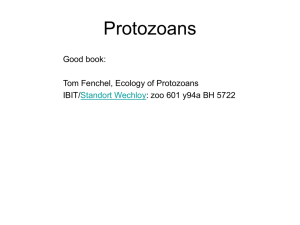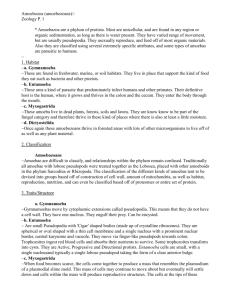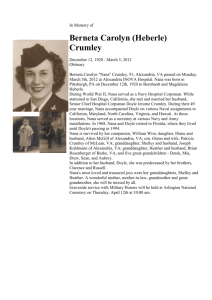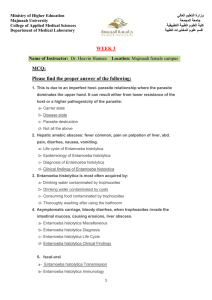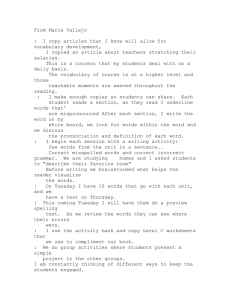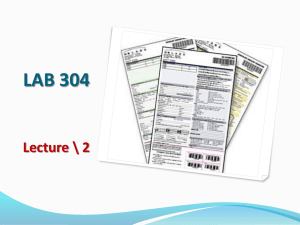30790.docx
advertisement
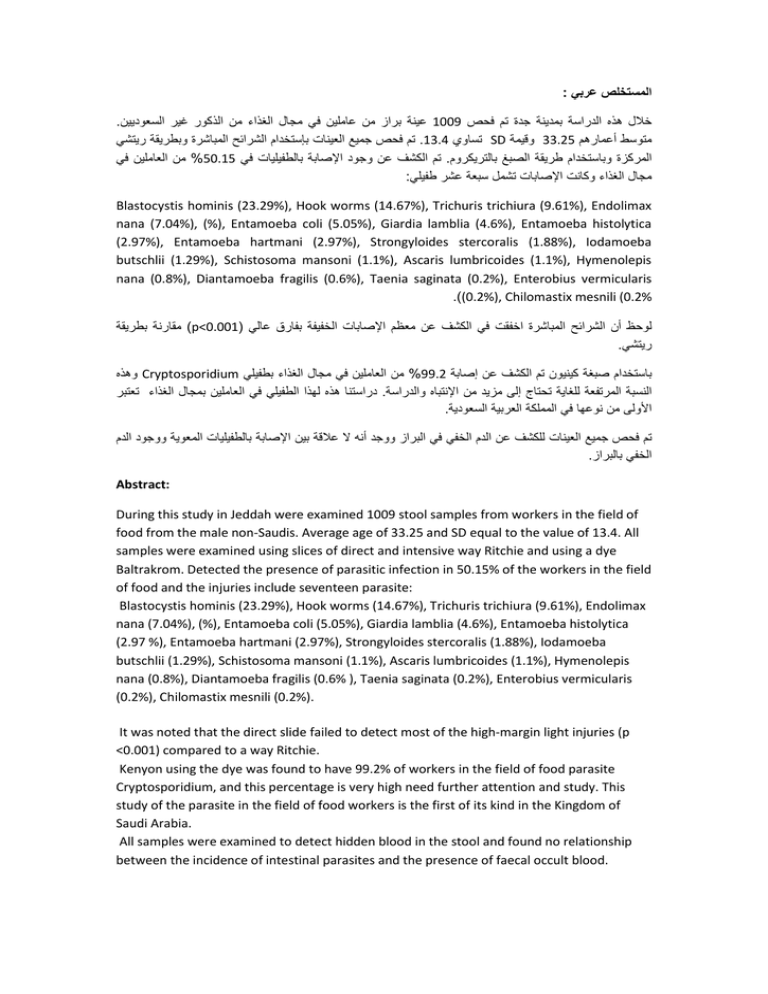
: المستخلص عربي . عينة براز من عاملين في مجال الغذاء من الذكور غير السعوديين1009 خالل هذه الدراسة بمدينة جدة تم فحص تم فحص جميع العينات بإستخدام الشرائح المباشرة وبطريقة ريتشي.13.4 تساويSD وقيمة33.25 متوسط أعمارهم من العاملين في%50.15 تم الكشف عن وجود اإلصابة بالطفيليات في.المركزة وباستخدام طريقة الصبغ بالتريكروم :مجال الغذاء وكانت اإلصابات تشمل سبعة عشر طفيلي Blastocystis hominis (23.29%), Hook worms (14.67%), Trichuris trichiura (9.61%), Endolimax nana (7.04%), (%), Entamoeba coli (5.05%), Giardia lamblia (4.6%), Entamoeba histolytica (2.97%), Entamoeba hartmani (2.97%), Strongyloides stercoralis (1.88%), Iodamoeba butschlii (1.29%), Schistosoma mansoni (1.1%), Ascaris lumbricoides (1.1%), Hymenolepis nana (0.8%), Diantamoeba fragilis (0.6%), Taenia saginata (0.2%), Enterobius vermicularis .)(0.2%), Chilomastix mesnili (0.2% ) مقارنة بطريقةp<0.001( لوحظ أن الشرائح المباشرة اخفقت في الكشف عن معظم اإلصابات الخفيفة بفارق عالي .ريتشي وهذهCryptosporidium من العاملين في مجال الغذاء بطفيلي%99.2 باستخدام صبغة كينيون تم الكشف عن إصابة دراستنا هذه لهذا الطفيلي في العاملين بمجال الغذاء تعتبر.النسبة المرتفعة للغاية تحتاج إلى مزيد من اإلنتباه والدراسة .األولى من نوعها في المملكة العربية السعودية تم فحص جميع العينات للكشف عن الدم الخفي في البراز ووجد أنه ال عالقة بين اإلصابة بالطفيليات المعوية ووجود الدم .الخفي بالبراز Abstract: During this study in Jeddah were examined 1009 stool samples from workers in the field of food from the male non-Saudis. Average age of 33.25 and SD equal to the value of 13.4. All samples were examined using slices of direct and intensive way Ritchie and using a dye Baltrakrom. Detected the presence of parasitic infection in 50.15% of the workers in the field of food and the injuries include seventeen parasite: Blastocystis hominis (23.29%), Hook worms (14.67%), Trichuris trichiura (9.61%), Endolimax nana (7.04%), (%), Entamoeba coli (5.05%), Giardia lamblia (4.6%), Entamoeba histolytica (2.97 %), Entamoeba hartmani (2.97%), Strongyloides stercoralis (1.88%), Iodamoeba butschlii (1.29%), Schistosoma mansoni (1.1%), Ascaris lumbricoides (1.1%), Hymenolepis nana (0.8%), Diantamoeba fragilis (0.6% ), Taenia saginata (0.2%), Enterobius vermicularis (0.2%), Chilomastix mesnili (0.2%). It was noted that the direct slide failed to detect most of the high-margin light injuries (p <0.001) compared to a way Ritchie. Kenyon using the dye was found to have 99.2% of workers in the field of food parasite Cryptosporidium, and this percentage is very high need further attention and study. This study of the parasite in the field of food workers is the first of its kind in the Kingdom of Saudi Arabia. All samples were examined to detect hidden blood in the stool and found no relationship between the incidence of intestinal parasites and the presence of faecal occult blood.
